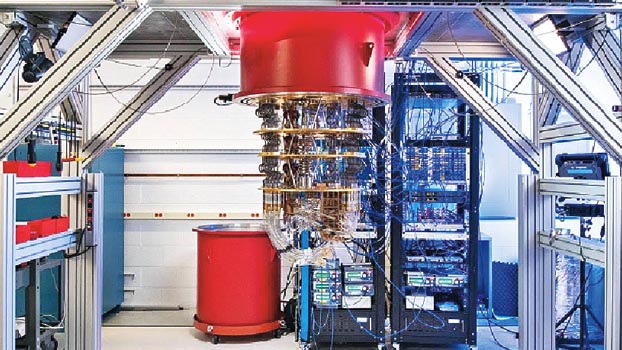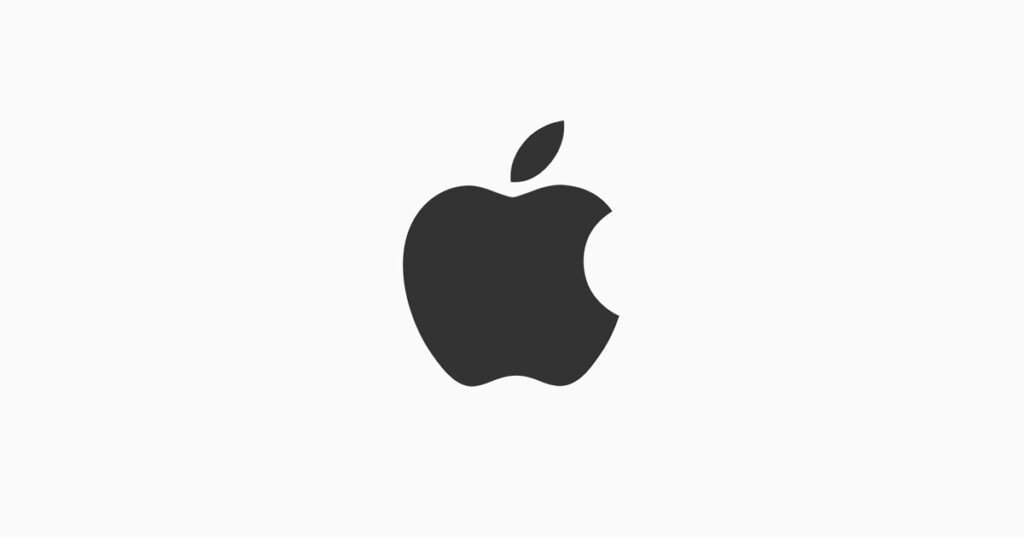Quantum computing is computing using quantum-mechanical phenomena, such as superposition and entanglement. A Quantum Computer is a device that performs quantum computing. They are different from binary digital electronic computers based on transistors. Whereas common digital computing requires that the data be encoded into binary digits (bits), each of which is always in one of two definite states (0 or 1), quantum computation uses quantum bits, which can be in superpositions of states. A quantum Turing machine is a theoretical model of such a computer and is also known as the universal quantum computer. The field of quantum computing was initiated by the work of Paul Benioff and Yuri Manin in 1980, Richard Feynman in 1982, and David Deutsch in 1985.
QU-BIT (Quantum BIT):
A Qu-bit is a two-state quantum-mechanical system. In a classical system, a bit would have to be in one state or the other. However, quantum mechanics allows the Qu-bit to be in a superposition of both states at the same time, a property that is fundamental to quantum computing.
Superposition and Entanglement:
It’s OK to be a bit baffled by these concepts since we don’t experience them in our day-to-day lives. It’s only when you look at the tiniest quantum particles – atoms, electrons, photons, and the like – that you see intriguing things like superposition and entanglement.
- Superposition is essentially the ability of a quantum system to be in multiple states at the same time — that is, something can be “here” and “there,” or “up” and “down” at the same time.
- Entanglement is an extremely strong correlation that exists between quantum particles — so strong, in fact, that two or more quantum particles can be inextricably linked in perfect unison, even if separated by great distances. The particles remain perfectly correlated even if separated by great distances. The particles are so intrinsically connected, they can be said to “dance” in instantaneous, perfect unison, even when placed at opposite ends of the universe. This seemingly impossible connection inspired Einstein to describe entanglement as “spooky action at a distance”.
Quantum Computer:
A Quantum Computer is a machine that performs calculations based on the laws of quantum mechanics, which is the behavior of particles at the sub-atomic level. A Quantum is a smallest possible discrete unit of any physical property Quantum Computing. Computation depends on principle of quantum theory.

Classical Bit and Qubit
Advantages of Quantum Computers:
[2] Quantum computers operate on completely different principles to existing computers, which makes them really well suited to solving particular mathematical problems, like finding very large prime numbers. Since prime numbers are so important in cryptography, it’s likely that quantum computers would quickly be able to crack many of the systems that keep our online information secure. Because of these risks, researchers are already trying to develop technology that is resistant to quantum hacking, and on the flip side of that, it’s possible that quantum-based cryptographic systems would be much more secure than their conventional-analogs.

Differences between Permutations of a Classical Bit and Qu-Bit
Working of Quantum Computer:
In a 3-bit register of a classical computer, one of the eight numbers can be stored, but in a quantum register all eight numbers can be stored in one register at the same time and operated on simultaneously.
Facts Regarding Quantum Computing:
- Power consumption is the critical factor of any device running on electricity. A huge array of processors need a hefty amount of power supply to sustain their performance. The fastest supercomputer in the world, Sunway TaihuLight (as of April 2017) consumes 15.37 MW of power. However, it gets fascinating with quantum computers. Since they use quantum tunneling, they will reduce the power consumption by a factor of 100 to 1000.
- Quantum computing is often described as “natural”. This is because although we don’t completely understand them, the mechanisms underpinning the real world (which have evolved through nature) clearly operate at a sub-atomic level. By simulating this with computers, we come a huge step closer to being able to simulate the natural world.
- At a quantum level, science fiction appears to become reality. Particles can travel backward or forwards in time and teleport (quantum tunneling) between two positions.
Requirements to Build a Quantum Computer:
We need Qu-bits that behave the way we want them to. These Qu-bits could be made of photons, atoms, electrons, molecules, or perhaps something else. Scientists at IQC at researching a large array of them as potential bases for quantum computers. But Qu-bits are notoriously tricky to manipulate since any disturbance causes them to fall out of their quantum state (or “decohere”). Decoherence is the Achilles heel of quantum computing, but it is not insurmountable. The field of quantum error correction examines how to stave off decoherence and combat other errors. Every Day, researchers at IQC and around the world are discovering new ways to make Qu-bits cooperate.
So Quantum Technology is Still Years Away?
No, quantum technologies are already in use! QKD is already commercially available, and will greatly benefit from new research (scientists at IQC are currently pursuing quantum encryption through free space via satellite). Although a fully functioning quantum computer is a longer-term goal, many fundamental and practical discoveries have been made in the name of quantum computing. Quantum sensors and actuators will allow scientists to navigate the nano-scale world with remarkable precision and sensitivity. Such tools will be invaluable to the development of true quantum information processors. The quantum revolution is already underway, and the possibilities that lie ahead are limitless.

Google Quantum Computer
Research of Tech Giants on Quantum Computing:
Along with NASA, Google has spent the last two years testing a system made by Canadian company D-Wave Systems at the NASA Ames Research Centre alongside its Silicon Valley headquarters. Google and the US space agency have now extended their contract for seven years, D-Wave said, giving them use of a new system that is twice as powerful, along with access to future generations of the technology. The search company has been trying to apply quantum technology to solving problems like teaching computers to see and understand language, according to Vern Brownell, D-Wave chief executive.
The latest D-Wave system has more than 1,000 Qu-bits, nearly double the number of the system Google and NASA have been testing. Mr. Brownell said that tests on the company’s latest system showed that it could outperform even specialized classical computer systems for the particular class of problems for which quantum computers are best suited, which involve optimization of large volumes of data.
“Google has some of the most sophisticated data centers in the world, we’d have to outperform those data centers before we got into production,” said Mr. Brownell. Classical computing has more than half a century of systems design and programming behind it, giving it a big edge over an entirely new area of research, he added.
Applications of Quantum Computing:
- Machine Learning
- Computational Chemistry
- Financial Portfolio Optimization
- Logistics and Scheduling
- Drug Design
- Cyber Security
- Codebreaking
- Circuit, Software, and System Fault Simulation
- Artificial Intelligence
- Quantum/Classical Emulation and Interfacing
- Quantum Optimization
- Networked Quantum Sensors
The field of Quantum Computing is growing rapidly as many of today’s leading computing groups, universities, colleges, and all the leading IT vendors are researching the topic. This pace is expected to increase as more research is turned into practical applications. Although practical machines lie years in the future, this formerly fanciful idea is gaining plausibility.
The current challenge is not to build a full Quantum Computer right away; instead to move away from the experiments in which we merely observe quantum phenomena to experiments in which we can control these phenomena. Systems in which information obeys the laws of Quantum Mechanics could far exceed the performance of any conventional computer. Therein lies the opportunity and the reward. No one can predict when we will build the first quantum computer; it could be this year, perhaps in the next 10 years, or centuries from now. Obviously, this mind-boggling level of computing power has enormous commercial, industrial, and scientific applications, but there are some significant technological and conceptual issue to resolve first.
But Quantum Computers will come.



